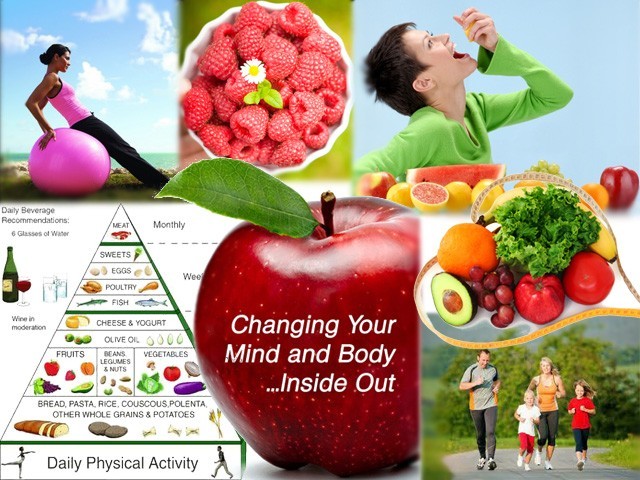Many roads lead to Rome: There are many ways to live and stay healthy. But there are so many tips and rules that make it difficult to separate the wheat from the chaff. So what is really important to stay healthy?
The diseases of civilization are the result of our changing lifestyles. This means that we move too little or eat industrially produced food at the price of preservatives and flavour enhancers. Salt and sugar, which are hidden in almost all heavily processed foods, are the main ingredients.
What makes us sick?
If one approaches the topics “healthy life” and “health”, one can also ask the opposite question: What actually makes us ill, apart from genetic dispositions? The statistics of the most frequent causes of death in 2014 provide a clear indication, according to the German medical journal “Deutscher Ärztezeitung”:
- Cardiovascular diseases: 338,056
- Cancer: 223,758
- Diseases of the respiratory system: 58,604
- Diseases of the digestive system: 38,537

Nutrition and lifestyle are crucial for the development of these diseases.
Overweight: eating as a pathogen
Overweight as a widespread disease is also caused by poor nutrition and lack of exercise. As a result, the risk of developing diabetes if you are overweight increases by 1500 percent. It can also lead to an increased risk of cancer in the intestines, uterus, breast, prostate and gall bladder. The liver or the vascular system can be affected, as can stroke, high blood pressure, heart attack or joint problems.
Fresh and wholesome: the right nutrition
If the body is considered purely functional, it provides numerous individual services and requires energy to do so. In the case of a car, care is taken to fill up with exactly the right fuel so that the engine does not break down or use branded oil. With edible oil, however, many people lower the bar. Because in everyday life it is not always important what is good and nutritious, but what tastes good or has an effect on the psyche. The latter refers, for example, to alcohol, cigarettes but also sweets. The return to natural unprocessed foods, which contain many nutrients and vital substances as well as dietary fibres, is an important step. In general, it is the dose that decides how negative something can be. A one-sided diet also leads to a backlash and nutrient deficiency.
Problem case meat
The diet in Germany is meaty. In the food chain from plants to animals to humans, toxins accumulate especially in meat. Conventional meat from farm animals also contains harmful substances such as
- Antibiotics,
- Growth promoter,
- anti-stress agents and
- Hormones.
In addition, too much red meat or sausage from cattle, game and pigs promotes disease. It increases cholesterol levels and through the unsaturated arachidone fatty acid the risks of arthritis and rheumatism. NH Healthcare Gravatar says that the likelihood of cancer also increases. Pork in particular, which is often found in everyday products such as grill sausages or curry sausages, should be avoided because pigs accumulate harmful substances in their fatty tissue. Beef or pork muscle meat contains about 60 milligrams of purines, which produce gout as uric acid precursors.
Praise and blame of heating
Roasting or cooking kills germs, on the other hand harmful amines are formed by strong heating. This also changes the essential fatty acids – which increases the risk of cancer. Therefore, increased meat consumption should be considered with caution.
Drinking: The body in flux
Humans consist of about 70 percent water. No wonder that we need 1.5-2 litres daily to maintain all bodily functions. Water cools through sweat and regulates body temperature. Blood and urine also consist to a large extent of water, which ensures the transport of various substances through the body. This reaches into the cell, where water dissolves all essential substances. Too little water leads to a reduced fluidity of the blood, whereby the hair vessels are no longer sufficiently supplied with blood and the supply of the body comes to a standstill..
The efficiency of the brain is reduced, the mucous membranes dry out and the digestive process is made more difficult. All this makes it easier for bacteria and viruses to damage the affected body more easily.
Drinking lots of water
The body is not only there in its digestive and metabolic processes to convert food into energy. It has a muscular system that wants to be used. Exercise keeps you fit, stimulates the heart and circulation and lubricates your joints. If you move, you form muscle mass; if you are inactive, muscle mass is reduced in favour of fat mass.
Activity against passivity
Elements of the personal lifestyle that have a negative effect have a habituation character and sometimes follow an addictive behaviour. This starts with sweets, goes on to fast food, alcohol and smoking.
If you are active in sports, you are countering your passivity with something. Sufficient sleep strengthens regeneration and supports detoxifying processes in the body.




